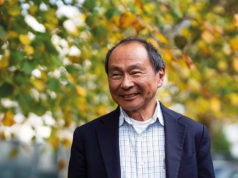Muhammad Zafar khan
The term “feudal” has been derived from a Latin word “feodum.” Some theorists believe that this word has been derived from a German word “feu or feud” having Arabic roots. The word feudalism is mainly used in an agrarian system.
Some social scientists think that feudalism came to an end with the advent of colonial rule and a capitalistic relationship was created between the landowners and the peasants. Other are of the mind that agriculture was feudalistic in colonial period but there is no feudalism in Pakistan. While the third group thinks that agriculture is still feudal by nature and the current Pakistan is semi-feudal and semi-industrial.
The feudal class aligns themselves with the Democrats and dictators equally. Muslim league, the flag bearer of Pakistan movement, was dominated by the feudal interests and did not favor any serious attempt to carry out land reforms. The first constituent assembly crowded with Nawab, Sardars and Choudhry’s, Ayub Khan surrounded by Nawab Amir Muhammad Khan, the Nawab of Kala Bagh and a feudal who, as a governor governed his province ruthlessly, Zulfiqar Ali Bhutto, a gigantic landlord from Sindh and cabinet minister of Ayub Khan and other such families of Pirs and sajda nashineens and Currently, PPP under the chairmanship of Bilawal Bhutto Zardari son of a large landowner from Sindh, Asif Ali Zardari. PML-N is over flooded with landlords like Ranas of Faisalabad, Zehris of Balochistan and Legharis from southern Punjab. Thirdly, PTI which claims to be the most democratic and change demanding party is crowded with the landlords previously having connections with the other political parties. There is a very low proportion of the youths and common men PTI promised in the campaign of May 2013 elections.
The main reason behind the stronghold of feudalists on the political structure is the fact that the political and administrative institutions are under the control of feudal lords. They always maintain good relations with bureaucrats and has formed a nexus which works on the principle of reciprocity. The political power of the feudal class is derived from their economic power, as their political power enable them to consolidate their economic stability. Since all the major political parties are under the monopoly of landlords so fewer chances of positive political development. All the land reforms (Ayub khan and ZA Bhutto) failed due to the conscious or unconscious opposition of Landlords.
There are few recommendations through which we can alleviate feudalism. Strict Land reforms and decentralization of power must be ensured. Agriculture taxes must be imposed on the feudal lords while evading the poor peasants. Peasants must be given alternative opportunities so that they do not depend on feudal lords for their needs and come out of the influence of feudal lords. There should be a single education system throughout the country so that the child of a common man can compete with the child of a Landlord. Special programs must be initiated to make aware the rural population of their rights and duties and give them some explicit political awareness. Such constitutional reforms are brought to ensure free and fair elections so that the landlords could not use their influence to get to the parliament. The feudal mentality must be discouraged through manifest political socialization. Political parties must be democratized to check the monopoly of feudalists over political parties. And the last but not least that the bureaucracy-landlords’ nexus must be checked properly.
The writer is a student of Political Science at Government College University, Lahore.
Disclaimer: Views expressed in this article are those of the author and Balochistan Voices not necessarily agrees with them.
Share your comments!








